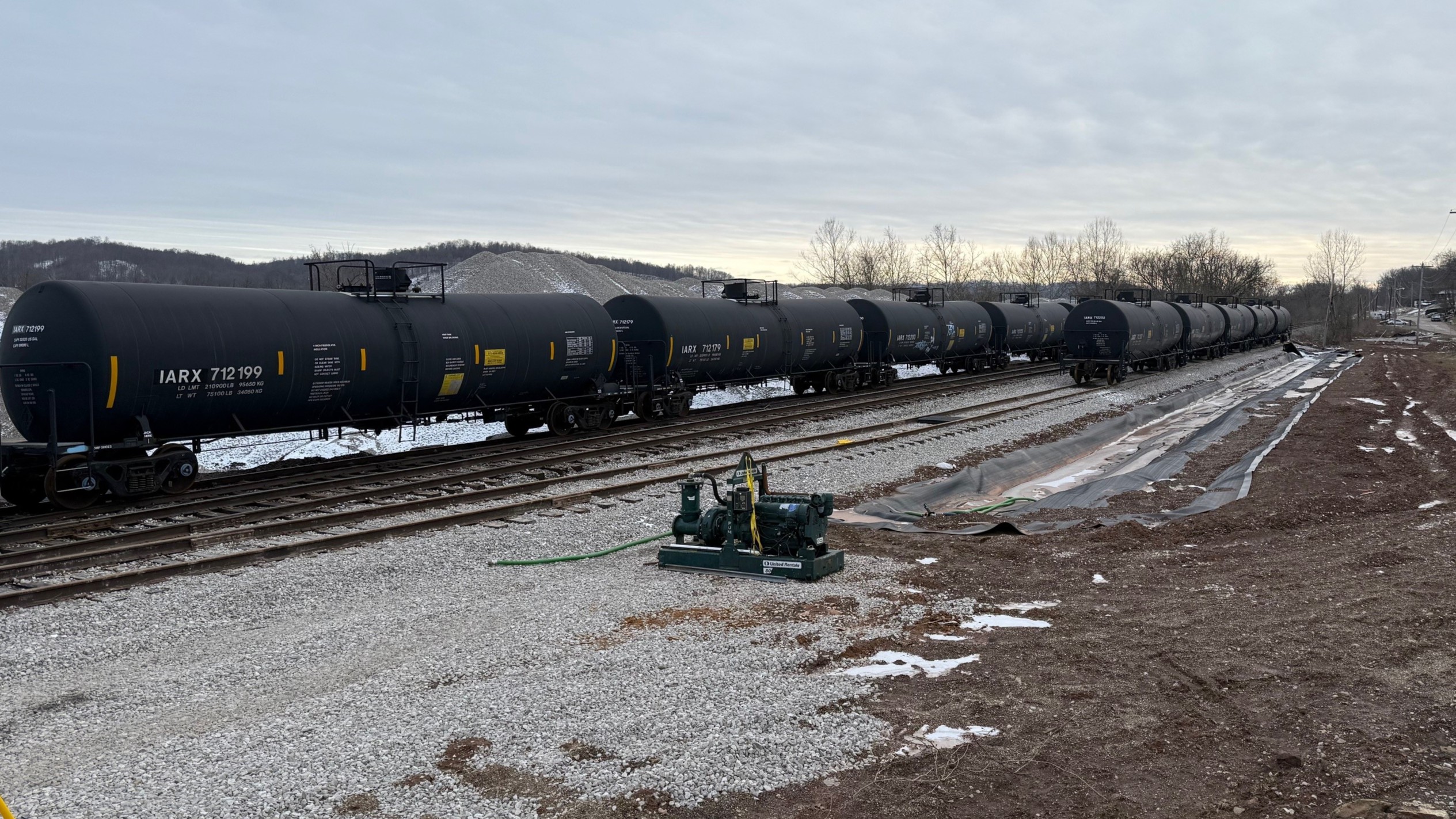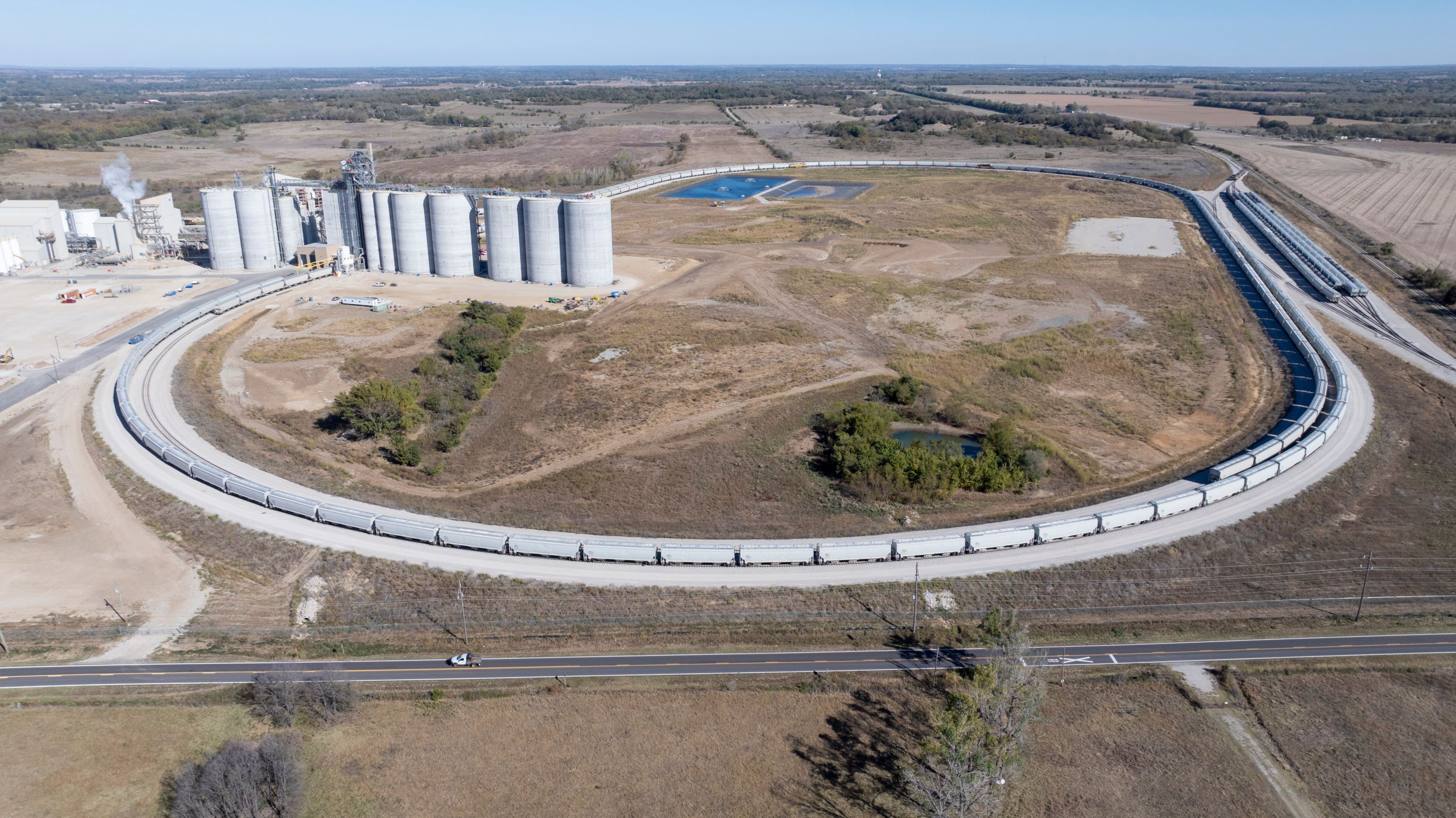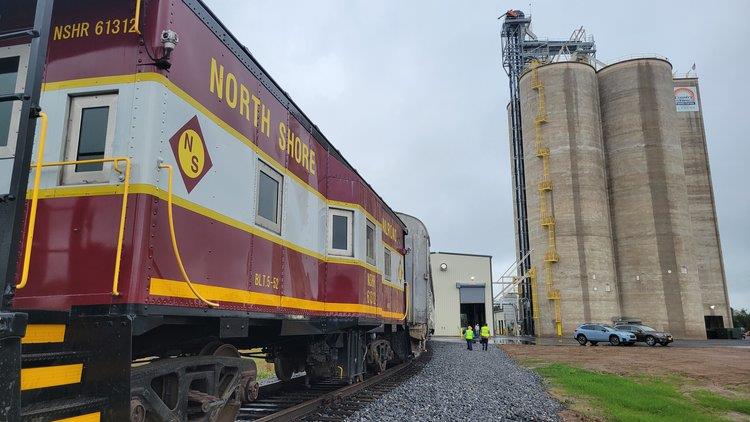The ASLRRA Business Development Award Competition recognizes the Class II and III railroads that have designed and enacted the most innovative and successful business-building initiatives in the small railroad industry. Please contact Amy Krouse with any questions.
 Convincing a company that has not had rail shipping experience to become a rail customer is difficult. Add in a need to coordinate service with other railroads and create transload facilities to offer a flexible, scalable shipping option and the project becomes even more complicated. The BIP overcame all these hurdles in establishing service for Coterra Energy, transporting non-hazardous wastewater from eastern Pennsylvania to southeastern Ohio. BIP made sure Coterra, as a newcomer to rail shipping, understood and was comfortable with each step of the process.
Convincing a company that has not had rail shipping experience to become a rail customer is difficult. Add in a need to coordinate service with other railroads and create transload facilities to offer a flexible, scalable shipping option and the project becomes even more complicated. The BIP overcame all these hurdles in establishing service for Coterra Energy, transporting non-hazardous wastewater from eastern Pennsylvania to southeastern Ohio. BIP made sure Coterra, as a newcomer to rail shipping, understood and was comfortable with each step of the process.
In identifying a transload location close to Coterra, BIP worked closely with the Pennsylvania Northeast Regional Railroad Authority (PNRRA) and fellow ASLRRA member Delaware Lackawanna Railroad (DL). BIP had to then coordinate connections between DL and Class I railroads CSX and Norfolk Southern to move the carloads. In Ohio, BIP relied on the Southeast Ohio Port Authority (SEOPA) for assistance with acquiring permits and connecting with DeepRock Disposal Solutions, which handles the wastewater deliveries.
Part of making Coterra comfortable with a shift to rail meant offering the high level of service and flexibility for which short lines are well known. Coterra needed to be able to start or stop operations quickly based on market conditions, something BIP was able to accommodate by offering railcar storage at both BIP and DL.
This project has benefited not only Coterra and BIP but others, both directly and indirectly. There are cost savings and increased transportation options for Coterra. BIP expects to move 700 to 2,000 carloads a year with this partnership and has bolstered its reputation as a logistics provider, opening future business opportunities for the railroad. The project has also added six transloading jobs, supported local suppliers and generated construction at both origin and destination sites. On top of this, BIP estimates it will take 3,500 to 10,000 trucks per year off local roads.
 Far from being a new customer, Bartlett Grain had worked with SKOL for over 30 years. But it was the recent completion of a $375 million soybean processing plant that has brought significant growth to SKOL, Bartlett and the rural communities in southeast Kansas.
Far from being a new customer, Bartlett Grain had worked with SKOL for over 30 years. But it was the recent completion of a $375 million soybean processing plant that has brought significant growth to SKOL, Bartlett and the rural communities in southeast Kansas.
The massive project begun in 2021, and opened in Sept. 2024, comprises multiple storage silos, a processing plant and a siding off SKOL’s main line. The siding offers access to a two-mile double loop track around the plant and five storage tracks that can manage multiple unit trains at a time.
SKOL’s team recommended the facility site off the railroad’s main line and worked alongside Bartlett during the design and construction of necessary rail infrastructure. To handle the anticipated increase in traffic, SKOL had to make significant improvements to its rail line, which required upgrades to bridges, turnouts, rail and sidings. Partnership with three Class I railroads – CPKC, BNSF and UP – were necessary, including building a 286,000-pound unit-train-capable interchange for UP.
The new plant has resulted in an 85 percent increase to Bartlett’s traffic in the fourth quarter of 2024 over the previous year, with SKOL’s rail traffic expected to increase by 40 percent. Bartlett’s new facility has brought 70 new jobs to the area and SKOL has had to hire six new team members with plans to hire another six to eight individuals in 2025.
Other SKOL customers are benefiting from infrastructure improvements made on the railroad’s line, and development in the area is generating more interest from businesses looking to locate there. With improved infrastructure, the region’s farmers are now able to connect to a wider market, aggregate producers are shipping more by rail and suppliers are receiving more and timely rail shipments.
 Short line employees often live and work in the communities their railroads serve, giving them an upper hand when it comes to being familiar with an area and understanding how it might fit the needs of a potential shipper. It was this short line advantage that helped the Union County Industrial Railroad (UCIR) bring Country View Family Farms (CVFF) to New Columbia, Pennsylvania to build a feed mill to service its hog production business.
Short line employees often live and work in the communities their railroads serve, giving them an upper hand when it comes to being familiar with an area and understanding how it might fit the needs of a potential shipper. It was this short line advantage that helped the Union County Industrial Railroad (UCIR) bring Country View Family Farms (CVFF) to New Columbia, Pennsylvania to build a feed mill to service its hog production business.
Members of UCIR’s marketing department identified a parcel of land in their area would be perfect for CVFF, but it was being farmed at the time and not for sale. Taking a chance, UCIR introduced the landowner to CVFF and together all three parties were able to agree to a plan that met everyone’s needs.
It only took a year for CVFF to complete construction of a 176-foot-tall mill tower on a 3,582-square-foot base, a 56-foot-tall pelleting annex with a 2,016-square-foot base and four 150-foot-tall grain silos. Also built was an 8,250-foot loop track to accommodate 115-car unit trains.
During that time, UCIR leaned in with other partners across the region. Class I partner Norfolk Southern had to establish new trackage rights to enable CVFF to receive trains without interrupting other movements. Pennsylvania business and rail grants and the Department of Community and Economic Development’s Manufacturing Tax Credit Program stepped up with investment funding. Pennsylvania’s Governor’s Action Team and the state’s Department of Agriculture supported the project, as did local economic development groups DRIVE and Focus Central PA.
Locating the CVFF facility in New Columbia has provided economic value across the region, as the facility sources much of its grain from local farms and produces enough hog feed to meet the needs of about 60 percent of the company’s contracted hog producers, most of which are within 50 miles of the site.
The new facility also brought 50 new jobs to the area while helping maintain 231 existing jobs statewide and supporting 30 full-time truck drivers who deliver feed to nearby farmers. And the farm that had been working the land where CVFF built its plant? It is not gone - the land in the middle of the new loop track is still farmable and being used for that purpose.